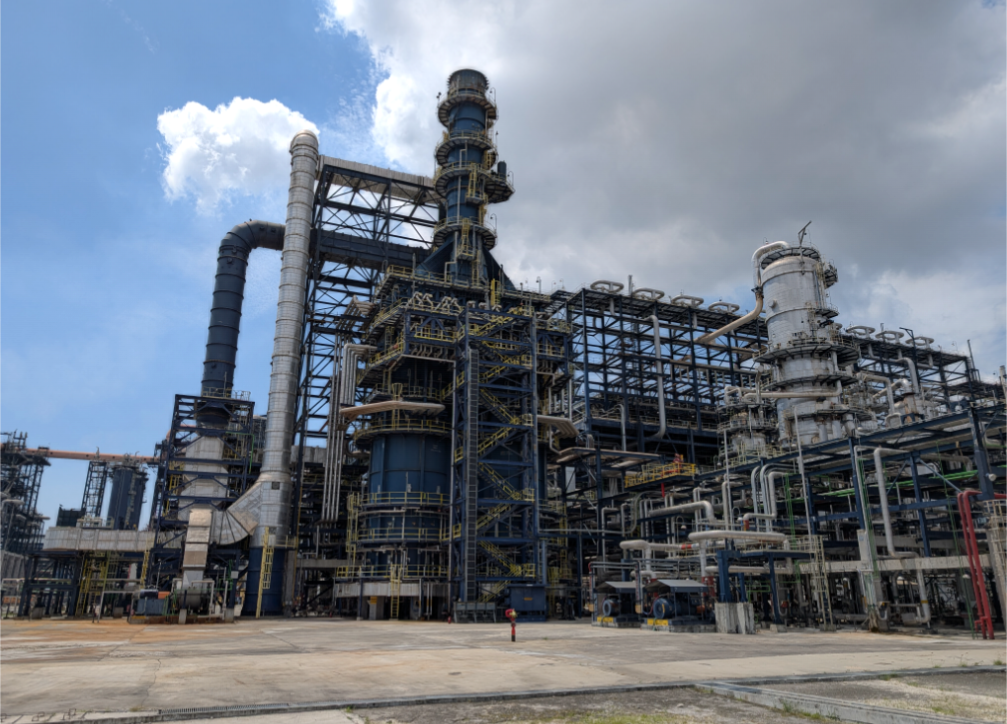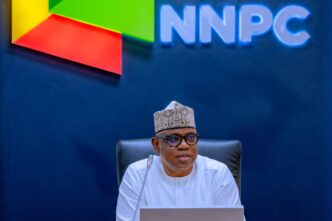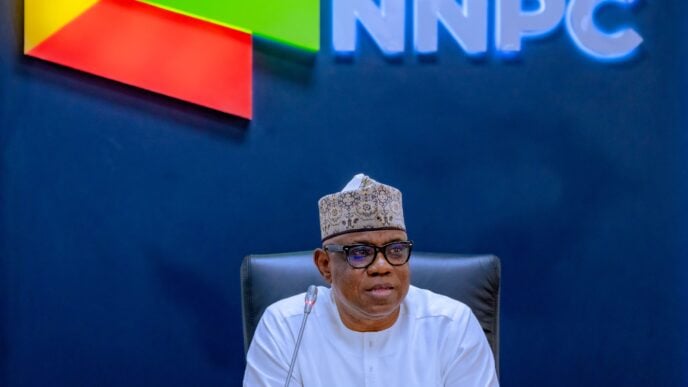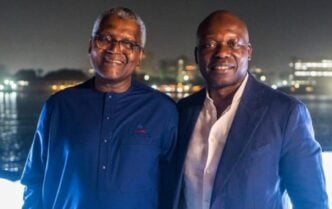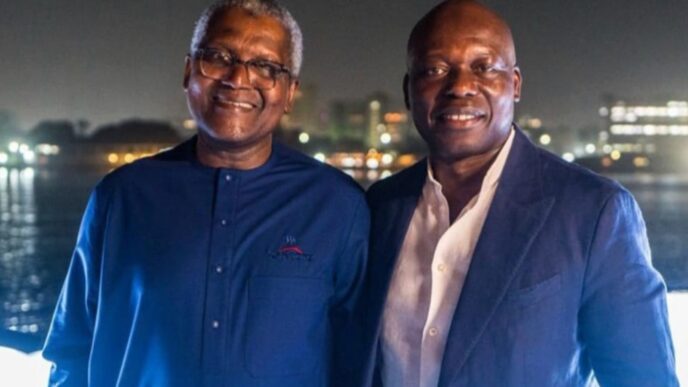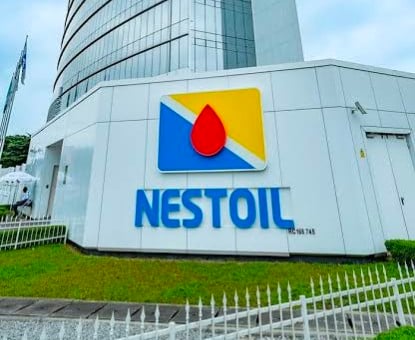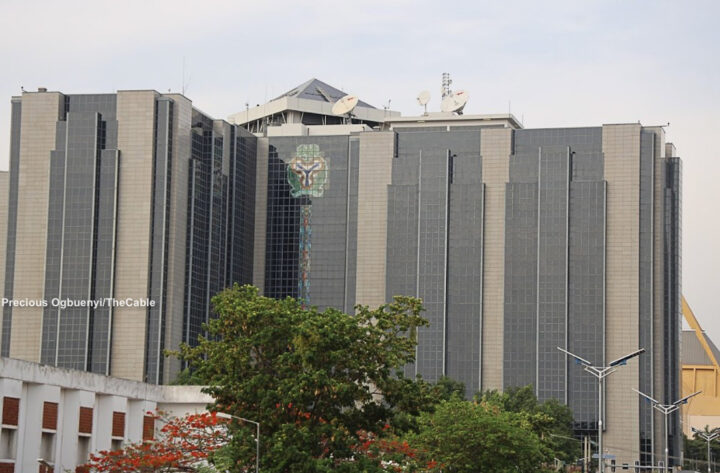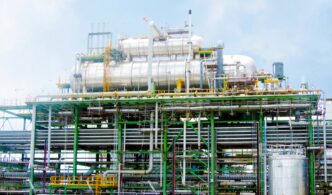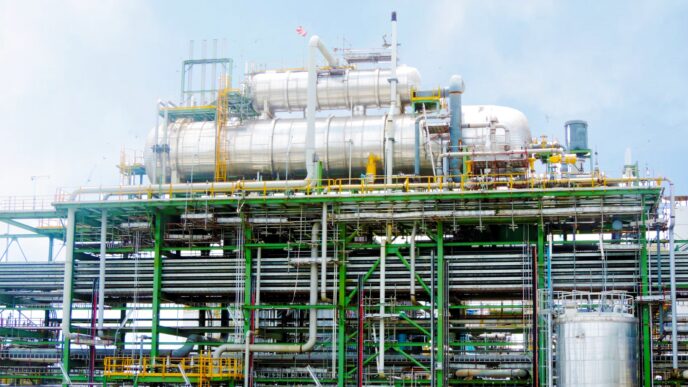The federal government has pledged full support for the Dangote Petroleum Refinery in its bid to achieve a production capacity of 1.4 million barrels per day (bpd).
Heineken Lokpobiri, the minister of state for petroleum resources (oil), spoke on Monday in Lagos during his welcome address at the 19th Africa Downstream Energy Week.
On October 26, Aliko Dangote, the founder of Dangote Group, said the refinery is expanding its production capacity from 650,000 bpd to 1.4 million bpd in the next three years.
Lokpobiri said he received encouraging updates about the refinery’s expansion plans and described it as a monumental development for Africa’s energy landscape.
Advertisement
“I received the good news that the Dangote Refinery is expanding its capacity to 1.4 million barrels per day,” he said.
“That will not just save Nigeria or West Africa, it will save Africa and, indeed, make an impact globally. The federal government will support him all the way to accomplishing that goal.”
The minister described the refinery’s expansion as a defining milestone for Africa’s quest for energy independence and a validation of the current administration’s policy direction.
Advertisement
He explained that the removal of the fuel subsidy and the liberalisation of the downstream petroleum sector were deliberate steps taken to encourage private sector growth.
“The main reason President Tinubu announced the removal of fuel subsidy on his first day in office was because, with subsidies, the private sector could not grow,” Lokpobiri said.
According to him, the downstream sector can only thrive when policies create an enabling environment for private capital to flow, invest, and harness opportunities.
He noted that, though the policy was initially misunderstood, it has now led to a more stable and competitive petroleum products market.
Advertisement
“With deregulation and liberalisation, there is now healthy competition. Prices are stable, availability has improved, and products are more accessible and affordable despite challenges,” he said.
Lokpobiri maintained that if subsidy had remained, Nigeria’s energy sector would be under significant strain today.
He reaffirmed the government’s commitment to encouraging investments in oil and gas, noting that the global discussion on energy transition now recognises the continuing relevance of hydrocarbons.
“The world has realised that energy transition cannot happen in a vacuum. Even as we pursue cleaner sources, the global economy still depends on oil and gas,” the minister said.
Advertisement
He added that without sufficient investment in hydrocarbons, there would be no financial capacity to support the transition to cleaner energy sources.
Citing United Nations data, the minister said about $540 billion needs to be invested annually in oil and gas recovery and infrastructure to meet growing global energy demands.
Advertisement
He emphasised that while climate change and net-zero commitments remain important, population growth and rising consumption patterns confirm that hydrocarbons will remain vital for decades.
“Africa, with a population exceeding 1.4 billion people, cannot afford to ignore investment in oil and gas. Expanding exploration, production, and refining capacity is crucial not only for self-sufficiency but also for the continent’s economic stability,” Lokpobiri said.
Advertisement
He observed that Nigeria’s downstream sector is showing signs of stability following the subsidy removal, citing improved product availability and increased investor confidence.
“Subsidy was not sustainable; it discouraged private investment and placed a heavy burden on government finances. What we are seeing today is a more competitive environment that promotes efficiency and private participation,” he said.
Advertisement
Lokpobiri also praised the president for making bold policy decisions that have repositioned the sector for long-term growth.
“It takes a courageous leader to make decisions that may be unpopular today but are necessary for the country’s future,” he said.
‘ONGOING REFORMS WILL ENHANCE ENERGY SECURITY’
The minister added that ongoing reforms in the oil and gas industry aim to enhance energy security, promote domestic refining, and encourage private sector participation across the value chain.
“We are no longer just talking about transition; we are building an energy mix that guarantees security for Africa. Every stakeholder must align with this vision to create the Africa we want,” he added.
Adetunji Oyebanji, the chairman of the advisory board of OTL Africa Downstream Energy Week, also spoke at the event, calling for greater collaboration, policy consistency, and innovation to advance Africa’s energy sustainability.
Oyebanji said the conference seeks to drive a collective vision for Africa’s energy future anchored on integration, inclusiveness, and responsible growth.
He described the OTL Africa Downstream Energy Week as a platform that connects policymakers, investors, and operators to shape the continent’s downstream energy sector.
“Energy sustainability is not merely about preserving resources; it is about ensuring that our growth today does not compromise the prosperity of tomorrow. We must build an industry that is competitive, responsible, and adaptable to a rapidly changing global environment,” he said.
Oyebanji, who was the former chairman of the Major Energy Marketers Association of Nigeria (MEMAN), noted that global energy dynamics are being reshaped by geopolitical tensions, supply constraints, and the push toward renewable energy.
He said Africa must move beyond being a supplier of raw hydrocarbons to becoming a hub of innovation and value addition.
“Africa must position itself not just as a source of energy, but as a source of innovation. Our growth must be sustainable, inclusive, and borderless,” he added.
Oyebanji stressed that Nigeria remains pivotal to Africa’s energy transformation, given its deregulated market, gas commercialisation drive, and expanding infrastructure base.
He, however, cautioned that sustained progress depends on policy stability, regulatory transparency, and institutional consistency.
Reflecting on the downstream market, the chairman noted that deregulation and subsidy removal, though initially difficult, were essential for building a competitive and efficient sector.
Oyebanji highlighted ongoing efforts in logistics, storage, and digital platforms as indicators of industry renewal.
“The downstream market is evolving amid both turbulence and transformation. Success will depend on our ability to combine innovation with policy stability and operational efficiency,” he said.
The chairman urged industry stakeholders to embrace collaboration as a tool for shared success.
“Our capacity to grow beyond boundaries depends not only on how hard we compete but on how well we cooperate,” he said.
Oyebanji concluded that Africa’s energy future lies in integration, bridging hydrocarbons, renewables, and alternative sources to achieve sustainable growth and environmental responsibility.
